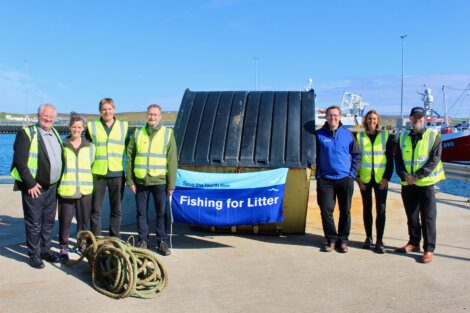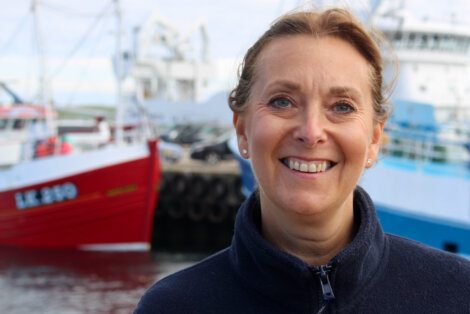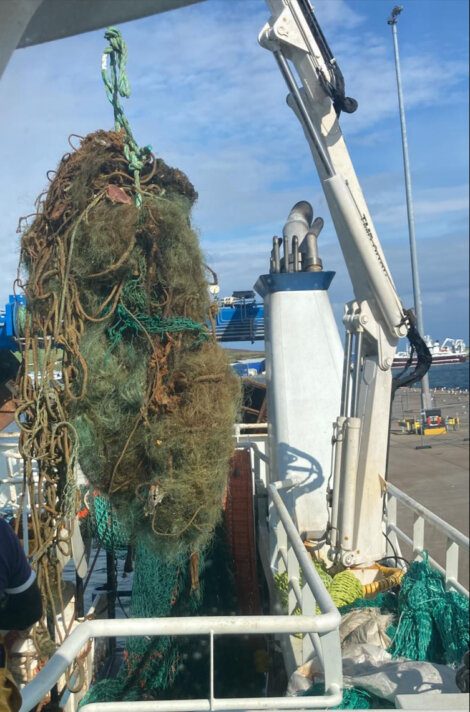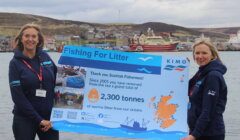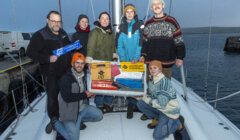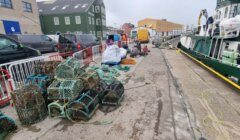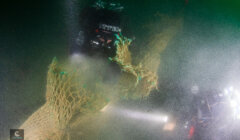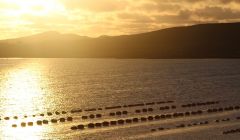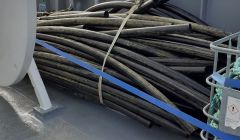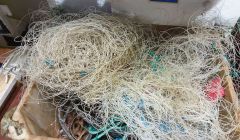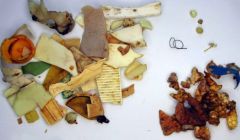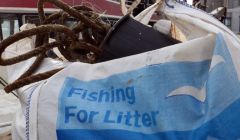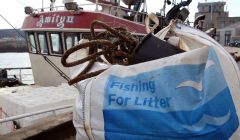Marine / ‘No brainer’ marine litter scheme goes from strength to strength
Two thousand tonnes of bruck has now been collected through the scheme in Scotland
A SCHEME to encourage fishermen to collect marine litter out at sea and dispose of it onshore has reached a milestone – two thousand tonnes of rubbish has now been collected in Scotland since 2005.
In Shetland around 58 tonnes of marine litter has been brought ashore through the Fishing For Litter scheme since it launched locally in 2014, with more than 30 boats involved.
An event was held in Lerwick on Thursday marking the project’s progress.
It coincidentally came during the same week Shetland Islands Council agreed to write to the Scottish Government requesting a ban on gillnetting by vessels over 15 metres.
The controversial practice, usually undertaken by foreign fishing vessels, is said to result in high levels of netting being discarded and left at sea.
A pile of gillnet was taken ashore in Lerwick by a local vessel through the Fishing For Litter scheme earlier today, which is pictured below.
The Fishing For Litter project is organised by KIMO International, a network of local governments working together for healthy seas, cleaner beaches and thriving coastal communities.
Project coordinator Julie Cant said around 80 per cent of rubbish picked up through the scheme originated from land.
She said the international scheme was a “no brainer” and was going from “strength to strength”.
Shetland Islands Council is a founding member of KIMO UK since the early 1990s, and it is also hosts the international secretariat.
In Shetland the harbours of Lerwick, Scalloway and Cullivoe are involved in Fishing For Litter.
Become a member of Shetland News
Fishermen are provided with hardwearing bags to collect marine litter they find in their nets, and when they are ashore it is placed into a skip. The scheme also covers the costs of disposal.
In Scotland there are 20 harbours and around 300 vessels involved, with funding coming from the Scottish Government. KIMO also oversees the project in England too.
Coordinator Cant said the team finds “positivity everywhere we go”.
Shetland Islands Council’s environment and transport committee chair Moraig Lyall was also on hand to take part in the ceremony and she was keen to praise the scheme.
But she said there was a sense of “irony” that while Fishing For Litter takes rubbish out of the water, industrial gillnetting often results in nets being discarded into the sea.
Meanwhile KIMO international president Jerry Ahlström praised Shetland Islands Council for bringing up the issue of industrial gillnetting.
He said “it is on the [KIMO] agenda…our exact standpoint we don’t know yet, but we don’t like it”.
Ahlström added that KIMO’s role touched on a variety of different marine issues, from lost containers to microplastics.
The UK KIMO branch will meet in Shetland tomorrow (Friday).
Become a member of Shetland News
Shetland News is asking its many readers to consider paying for membership to get additional features and services: -
- Remove non-local ads;
- Bookmark posts to read later;
- Exclusive curated weekly newsletter;
- Hide membership messages;
- Comments open for discussion.
If you appreciate what we do and feel strongly about impartial local journalism, then please become a member of Shetland News by either making a single payment, or setting up a monthly, quarterly or yearly subscription.






